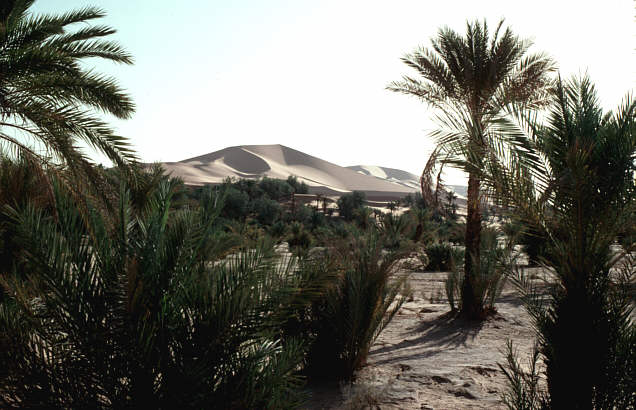Algeria, or otherwise known as the Democratic and Popular Republic of Algeria, has had a very long and tumultuous history. Algeria has been ruled by many different people and nations. It started off being a Roman colony, and it has been in control of the Arabs, the Ottoman Empire, and the French. Algeria has ventured from a high state of civilization to virtual barbarism at times, and then back again. It was once mostly Christian, but then converted to mainly Islam.
The French occupied Algeria starting in 1830, and this lasted until 1962. There independence was granted by France following a number of independence movements, which eventually led to a full-scale war. Algeria was granted there independence on July 5, 1962, and in October of the following year, there first President was elected, Ahmed Ben Bella. He made Algeria a socialist coutry. Two years later, he was overthrown by a military coup, and the Algerian Constitution was suspended, while the military tried to restore economic stability.
In 1991, the first parliamentary elections were held in Algeria. In order to stop the electoral results, the army cancelled the general election, and following this, Algeria fell into a country full of a bloody civil war. This civil war lasted until around 1999, while many innocent people were killed during this time by various terrorist groups. The army looked the other way while its citizens were slaughtered.
Again in 1999, a president was appointed, this time being Abdel-Aziz Bouteflika, and this was expected to bring peace and economic improvement. This has not happened, since Bouteflika has been in constant struggle with the military, whose support is critical. Despite the appearance of an emerging democracy, Algeria remains in essence a military dictatorship.
Algeria is considered as an emerging democracy, but in reality it is a multiparty republic with interim military administration. Its Constitution was made on November 19, 1976. This country is made of 48 provinces. Algeria's legal system is socialist, and it is based on French and Islamic law. There government contains three branches of government (Legislative, Executive, and Judicial), just like that of the United States. There Legislative Branch is a bicameral Parliament, consisting of the National People's Assembly, containing 380 seats with members popularly elected to four-year terms , and the Council of Nations, consisting of 144 seats, with 1/3 of its members appointed by the President and the other 2/3 elected by indirect vote and they serve six year terms. Algeria's Executive Branch consists of a chief of State (President) who is elected by popular vote to a five year term, a Prime Minister who is appointed by the President, and a cabinet called the Council of Ministers, which are appointed by the Prime Minister. Algeria also has an independent Judicial Branch, called the Supreme Court or Cour Supreme. Algeria is a multiparty system, and as of 1990, it contained over 50 legal parties. This country also contains a diplomatic representative to the United States and also one in return.



